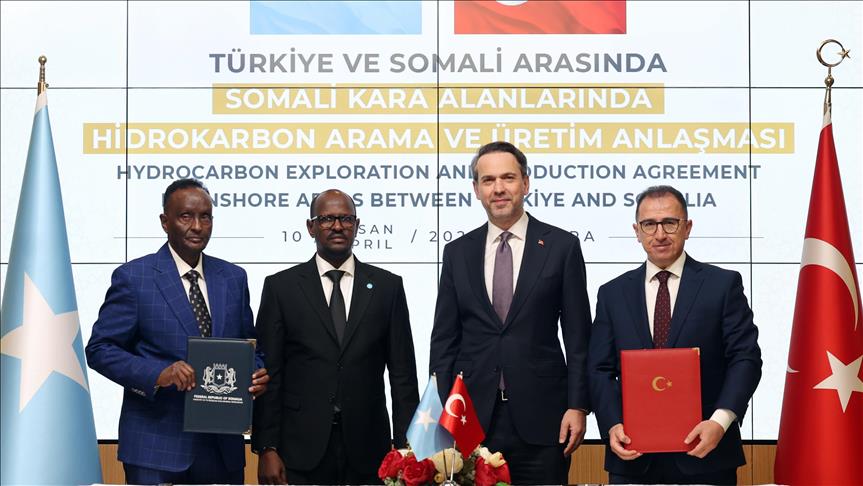The mining industry is expected to mark the next phase of Türkiye-Somalia bilateral ties following cooperation in the oil and gas sectors, according to Somalia’s petroleum and mineral resources minister.
Dahir Shire Mohamed spoke to Anadolu on Thursday, following the signing ceremony of the ‘Hydrocarbon Exploration and Production Agreement in Somalia’s Onshore Areas Between Türkiye and Somalia,’ in the capital Ankara.
Mohamed said that in a bid to strengthen bilateral relations, they are also seeking partnerships in the mining sector.
‘After completing the necessary legal procedures, we expect Turkish mining companies to come to Somalia and sign agreements,’ Mohamed said.
– Türkiye, Somalia boost energy cooperation with onshore exploration deal
‘Türkiye is already conducting operations in Somalia’s offshore areas and with today’s agreement, the country will begin exploration on land,’ Mohamed said.
He also noted that the onshore hydrocarbon agreement marks a significant development in the energy partnership between the two nations.
In three onshore blocks covering approximately 16,000 square kilometers in Somalia, Turkish Petroleum will begin oil and gas exploration activities in the coming months under the production-sharing agreement.
Mohamed said they will collaborate with Türkiye and explained that while the onshore survey will begin, significant progress has already been made with the offshore survey, which is a positive development.
The Turkish Oruc Reis Seismic Vessel has completed nearly 78% of its survey since October of last year, he underlined.
Mohamed, referring to the onshore agreement, pointed out that Türkiye will begin onshore surveying.
He continued: ‘It means a lot. It will strengthen our already existing relations between the two countries and will benefit Somalia by making use of its natural resources.’
Regarding short-term expectations, he added, ‘Our goal is to discover oil. Somalia will see its first-ever oil and gas discovery. When our country finds oil and gas, the situation will completely change.’

